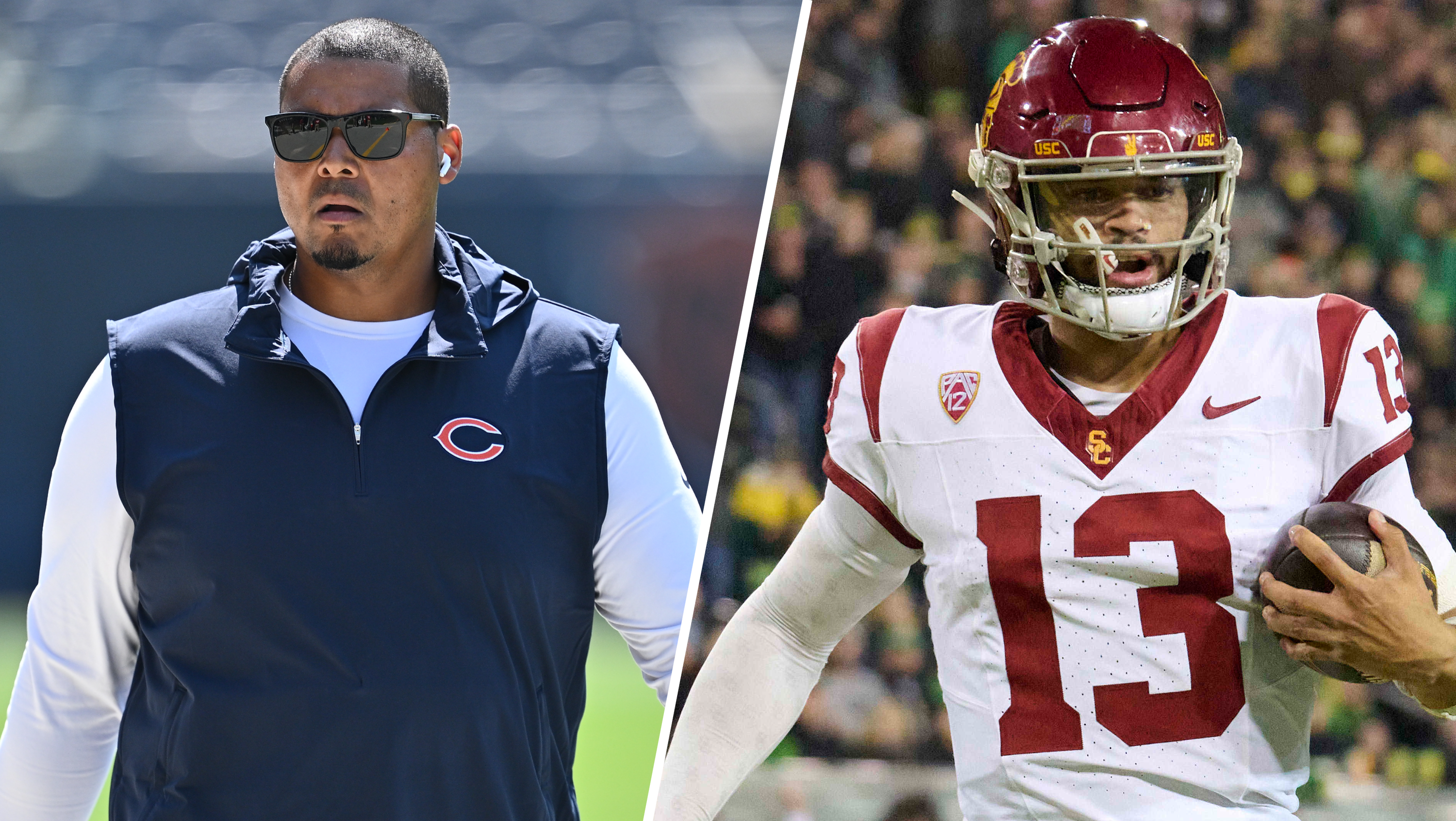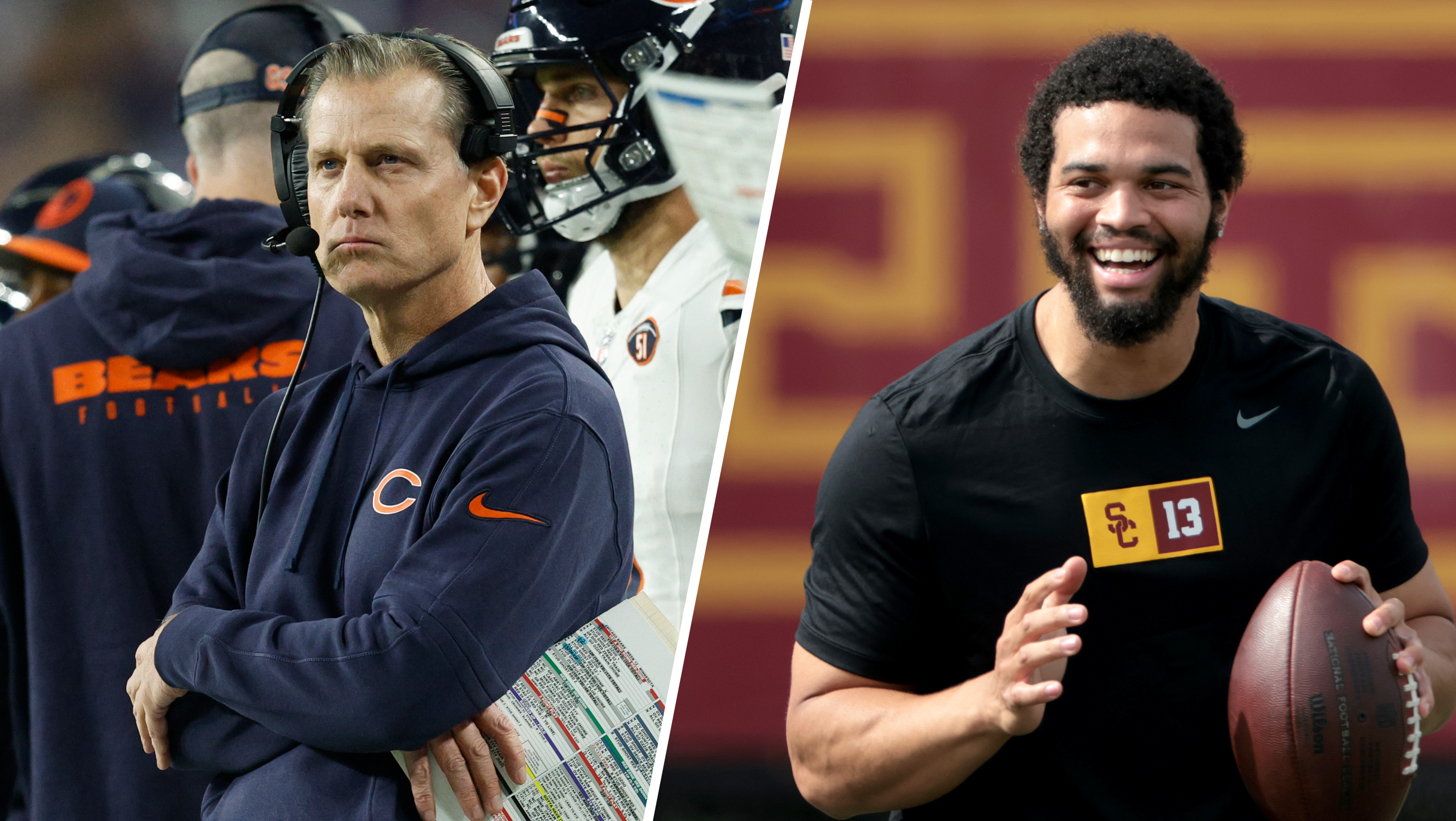The Houston Texans stunned the NFL world Wednesday when they traded a 2025 second-round pick to the Buffalo Bills for star wide receiver Stefon Diggs and other draft picks, per multiple media reports.
Houston's decision to acquire the four-time Pro Bowl receiver from the Bills perfectly illustrates the different phases of Super Bowl contention in the NFL.
The Bills acquired Diggs from the Minnesota Vikings in March of 2020 to give then-ascending quarterback Josh Allen an elite receiver to aid in his development. Diggs spent four seasons in Buffalo, but with the high cap bill for Allen starting to come due, the Bills elected to trade the talented but disgruntled receiver to clear some cap space as they continue to reset their roster around a highly-paid quarterback.
Stay in the game with the latest updates on your beloved Chicago sports teams! Sign up here for our All Access Daily newsletter.
The Texans are on the other end of that spectrum.
Quarterback C.J. Stroud electrified in his rookie campaign despite Nico Collins, Tank Dell, and Noah Brown serving as his three leading wide receivers. After watching Stroud lead the Texans to the AFC Divisional Round in his rookie season, the Texans made the move to acquire an expensive, No. 1 receiver in Diggs to help aid Stroud's development and throw Houston's contention window even further open.
In today's NFL, you give your young quarterback proven weapons to aid his development and then trust him to elevate lesser weapons once the star payday hits following Year 4 of Year 5.
CHICAGO BEARS
Like the Texans, the Bears are plotting to rip their contention window off the hinges by building a pristine situation for the presumed arrival of No. 1 overall pick Caleb Williams.
Bears general manager Ryan Poles listed several reasons for the Bears' decision to trade quarterback Justin Fields during last week's annual NFL league meetings in Orlando.
But the most significant factor in Poles' decision to move on from Fields and position the Bears to draft Williams was the benefit of resetting the quarterback contract clock.
"It wasn't Justin vs. one of these rookies," Poles said in Orlando. "It's really the timeline and how much runway you have. To get a guy up off the ground, you need to support them with as much talent as possible. Then that fits. It takes so much cap space, which is a good thing if you get to that point. But they have to be the reason you start winning. Then, it's harder to add the talent around them. You can look around the league, and it happens a lot. The teams that can sustain success through that period I think do a really special job."
The clearest path to contention in the NFL is to have an elite quarterback on a rookie contract. That cheap quarterback contract allows teams to load up the roster with talent around the young signal-caller for four to five seasons before tough cap decisions are necessary.
If you have an ascending quarterback, you must start building around him immediately. Having a star quarterback on a rookie contract is the greatest competitive advantage in the modern NFL. The Bears understand that. They also understand that time is of the essence.
Poles and the Bears started doing that last offseason with the acquisition of wide receiver DJ Moore and the selection of right tackle Darnell Wright. It continued this offseason with the surprise trade for wide receiver Keenan Allen and the signings of running back D'Andre Swift and tight end Gerald Everett. Assuming Williams will be the Bears' pick at No. 1 overall, he will enter into arguably the best situation for a top overall pick in the modern era.
The Bears are doing everything necessary to allow Williams to quickly launch off the development pad in Year 1 and head onto the superstar trajectory that his talent suggests.
The Texans know Stroud is an elite talent and can't spend another year of his rookie contract surrounding him with an average supporting cast. The Bears don't plan to waste any of Williams' precious rookie contract.
If Williams is as good as many believe he is, the Bears' contention window will stay open even after Williams gets the superstar quarterback payday. But they'll have to make tough decisions when the time comes. If Williams becomes what they envision, they'll be happy to make those decisions.
The Bills traded Diggs because they have Allen (among other things). The Chiefs dealt Tyreek Hill because they have Patrick Mahomes. The Chargers traded Allen to the Bears because they have Justin Herbert. The Bengals will likely trade Tee Higgins (or let him walk) because they have Joe Burrow.
That's the elite quarterback business.
But in order to get into that business, you have to give a young signal-caller all he needs to blossom. The Texans are doing right by Stroud, just as the Bears have laid the groundwork for Williams to take off once he arrives in Chicago.
The Bears and Texans hope to reach the stage of permanent contention that the Bills are in with Allen -- one in which his presence likely guarantees 10 wins a season. But for them to get there with Stroud and Williams, they have to give them the tools needed to blossom.
Williams will have Moore and Allen in Chicago. Stroud now has Diggs.
For the Bears and Texans, the immediate future (the next four to five seasons) might be their best chance to win a title. Once the sand runs out of that hourglass, the decisions get tougher, and the margin for error slimmer.
But that's a place you can't get to unless you start at the beginning of the contention roadmap.
With moves for Allen and Diggs, the Bears and Texans show they understand the surest road to contention in the modern NFL.


